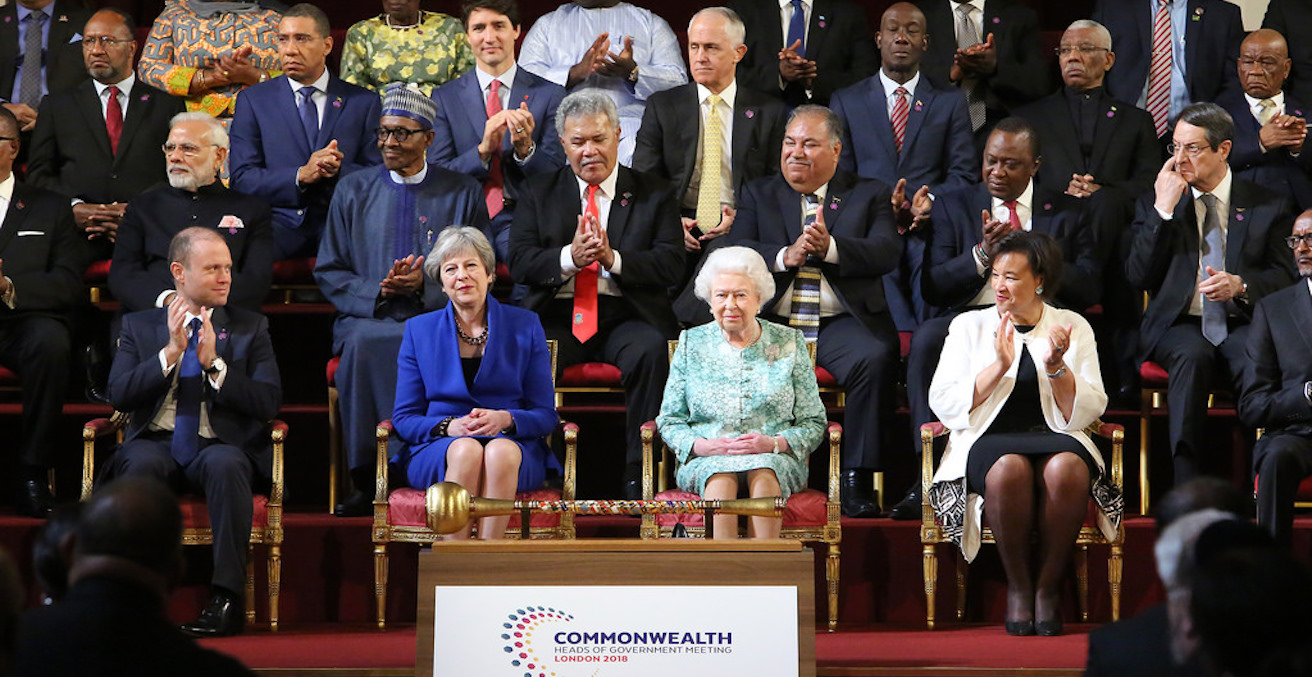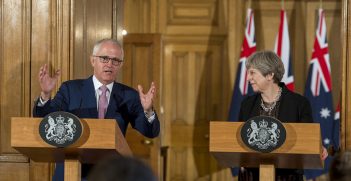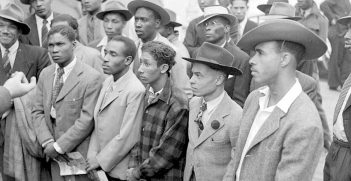The Future of the Commonwealth

The Commonwealth is a unique global network based on shared history, language, legal systems and values. The London Summit shows why it matters more than ever, including to a UK determined to be global in action and spirit as it prepares for Brexit.
The Commonwealth is built around common values, shared language and trust. These are all precious commodities in a world which is changing fast and can act as the glue which binds countries together. As old orders break down and threats to the global international rules-based system are multiply, the Commonwealth’s value is enhanced as part of a wider set of multilateral institutions and alliances.
We have seen this twice in the past few months on opposite sides of the world: on the Gold Coast in Australia during the Commonwealth Games, then at the Commonwealth Heads of Government meeting (CHOGM) in the UK on 16-20 April. After the Games, the UK took up the baton to host the Commonwealth Summit in London. This brought together a record number of leaders for the Heads of Government meeting.
The Games and the Summit showcased the extraordinary diversity, energy and potential that exists across the Commonwealth, and served as a reminder of the connections between us. They transcend nationality, gender, geography, religion and ethnicity. In our fast-changing and turbulent world, this unique global network, based on shared history, language, legal systems and values, matters more than ever.
Nelson Mandela was a champion of the Commonwealth, arguing it made us safer in its diversity. The stats are striking: the Commonwealth spans six continents, includes 53 countries (up from 52 with The Gambia re-joining just before CHOGM) in every regional grouping and is home to 2.4 billion people.
But to be frank, since its high days fighting apartheid, the Commonwealth has at times struggled for purpose. There were signs at the previous CHOGM – in Malta in 2015 – of a reawakening. The ambitious climate statement agreed upon in Valletta bridged regional divides and paved the way for the Paris Climate Agreement a few weeks later.
The London Commonwealth Summit has built on this and showed that the Commonwealth is capable of shaping a safer, prosperous and more sustainable world for us all. The UK has shown leadership in driving this renewal and has received outstanding support from Australia, amongst other partners. The Commonwealth is relevant for us both.
There are still sceptics in both our countries who will argue that the Commonwealth is too big, too diverse, and too rooted in the past to be able to offer much added value in international affairs. In his excellent book, Fear of Abandonment, AIIA National President Allan Gyngell argues that from the late 1960s, it was clear that the Commonwealth would not offer either side of politics the sort of foreign policy advantage they sought from it: “the ties with the past were too tenuous and the links to the new Afro-Asian world too amorphous”.
He has a point. But let’s consider the evidence. What are some of the tangible outcomes from the UK Summit on top global challenges and issues?
Security
Leaders agreed on the world’s largest and most geographically diverse commitment on cyber security. The UK will work with Australia and other partners to build capacity across the Commonwealth to better protect our people and businesses from ever-more sophisticated digital threats, and to counter those who aim to abuse the freedom of the internet to undermine our values, security and democracies.
In the margins of CHOGM, the UK, Australia, New Zealand and Canada held a Four Eyes meeting at the UK’s National Cyber Security Centre. Prime Ministers May and Turnbull agreed on a bilateral cyber cooperation agreement during their meeting at Chequers after the Summit.
Prosperity
This was the first Commonwealth Summit to make a unanimous statement on the need to fight protectionism. The Connectivity Agenda for Trade and Investment aims to expand investment and boost intra-Commonwealth trade to a value of $2 trillion by 2030.
Leaders pledged to ensure all girls and boys across the Commonwealth will be able to access at least 12 years of quality education and learning by 2030. The UK has committed £212 million pounds of funding to achieve this. Australia announced it would extend its programme focused on vocational skills and training for women and girls in South Asia and the Pacific.
Sustainability
CHOGM focused on action to protect oceans with the first-ever Commonwealth Blue Charter. The UK and Vanuatu are working together to launch a Clean Oceans Alliance to tackle plastics pollution. Australia is one of the early backers and has announced it will co-lead another group on coral alongside Belize and Mauritius.
Fairness
Commonwealth leaders have committed to protect the Commonwealth’s core values of democracy and good governance. The UK announced new funding, including funds to help improve the capacity of Pacific Commonwealth countries to deliver human rights. The UK and Australia are working together on a programme to support the Commonwealth election observation.
The Commonwealth is not a replacement or substitute for the EU. Our belief in the potential of the Commonwealth was there well before the Brexit referendum; for example we agreed to host CHOGM prior to the Leave vote. It is not an alternative to the EU: they are different organisations that do different things. The idea of a single market, or a customs union, or free movement across all 53 Commonwealth countries is currently far-fetched, especially when its members look primarily to other groups to support integration, such as the African Union, ASEAN and the Trans-Pacific Partnership.
The UK’s focus on the Commonwealth does, however, underline our determination to be even more global in action and spirit as we prepare for Brexit. We want to make the most of the opportunities it offers and work with Australia and other partners to ensure the Commonwealth better delivers in the 21st century.
In bilateral terms, the UK is moving quickly to strengthen a broader set of global relationships, including with Australia. Australia is at the opportunity end of the Brexit spectrum, and we are working hard to prepare the ground for a future free trade agreement with Australia to be one of the first new bilateral trade deals that we sign once we leave the EU in March 2019.
The Commonwealth is our Commonwealth and its time has come. Perhaps the right test is: if the Commonwealth didn’t exist, given all the new, complex, multi-faceted global challenges facing the world in the 21st century: would you invent it? My answer to that is a resounding yes.
Her Excellency Menna Rawlings CMG is the British High Commissioner to Australia. This is an edited extract from the High Commissioner’s speech to AIIA VIC on 15 May 2018. She will be speaking at AIIA ACT Branch on ‘The Commonwealth in London: A Summit with a Difference?’ on 14 June. You can register here.
This article is published under a Creative Commons Licence and may be republished with attribution.





